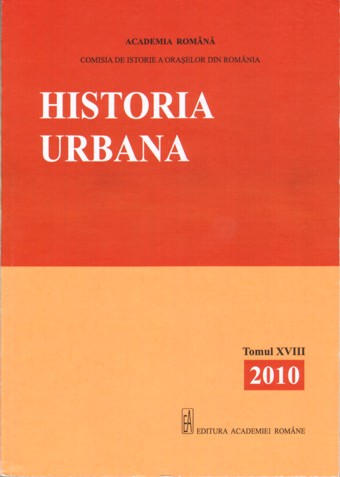Asistenţa săracilor în Ţările Române, în secolele al XVIII-lea şi al XIX-lea
Social Assistance in the Romanian Principalities During the 18th and 19th Centuries
Author(s): Ligia Livadă-CadeschiSubject(s): History
Published by: Editura Academiei Române
Keywords: social assistance; charitable organizations; orphans; beggars; wanderers; health; legislative acts; Walachia;
Summary/Abstract: During the last decades of the 18th century and at the beginning of the 19th century, phanariot princes from the two Romanian Principalities created, in their own name, as good Christians, or in the name of the state, as good administrators, a lot of charitable establishments. Charitable organizations have always been seen as one of the most important sides of a good administration and, during the 19th century, as a sign of progress and a proof of patriotism. Actions benefiting the poor express the social solidarity vision of the upper class. As in other parts of Europe where a debate took place about the integration of the poor in society, authorities do not accept practices such as begging and they try to impose a working obligation for all able poors. Beginning with the second half of the 18th century, several prince acts forbade the begging. Disabled poors are either sent to monasteries or they are payed for staying out of the street. In 1775, the Department of the public guardian (Departamentul Epitropiei Obşteşti) was created. It was the first public institution in charge with poors, orphans, schools and other municipal problems in Bucharest. The 19th century has witnessed of an attempt to reorganize, rationalise and improve the social measures initiated during the 18th century. Public pensions for the poors (especially for widows) are still available and efforts to forbid the begging have never stopped. Beggars with a family were also receiving a pension but they were forbidden to beg on the streets or in churches. Beggars with no family were confined to a special establishment. Begging was clearly associated to an illicit job. In 1832, an institution (Eforia caselor făcătoare de bine şi de folos obştesc) was created by the Organic Acts in order to deal with all these problems. This institution was also in charge with orphans (or abandoned children). Until 3 years old, children were raised by a nanny paid by the state. After that, children were supposed to be sent in an establishment meant to be built in the meantime. This establishment was ment to accommodate 200 children. As the establishment for children was always associated with the one for beggars, it never got the chance to be created. In practice, children over 3 years old were also raised by nannies and they were sent in training schools or in public schools. Following the Organic Acts, 120 beggars were receiving help from the state. 70 of them were accommodated in the establishment and 50 were receiving a pension. In reality l, it was very difficult to put these measures in practice. The compromise solution chosen by the authorities was to send beggars to monasteries. Since 1835, the Beggar Houses from Plumbuita and Malamucu, in Walachia, recceived public subsidies. Beginning with 1841-1842, Walachia public subsidies also covered the expenses of the Establishment for insane people and beggars from Mărcuţa.
Journal: Historia Urbana
- Issue Year: XVIII/2010
- Issue No: 18
- Page Range: 27-40
- Page Count: 14
- Language: Romanian
- Content File-PDF

